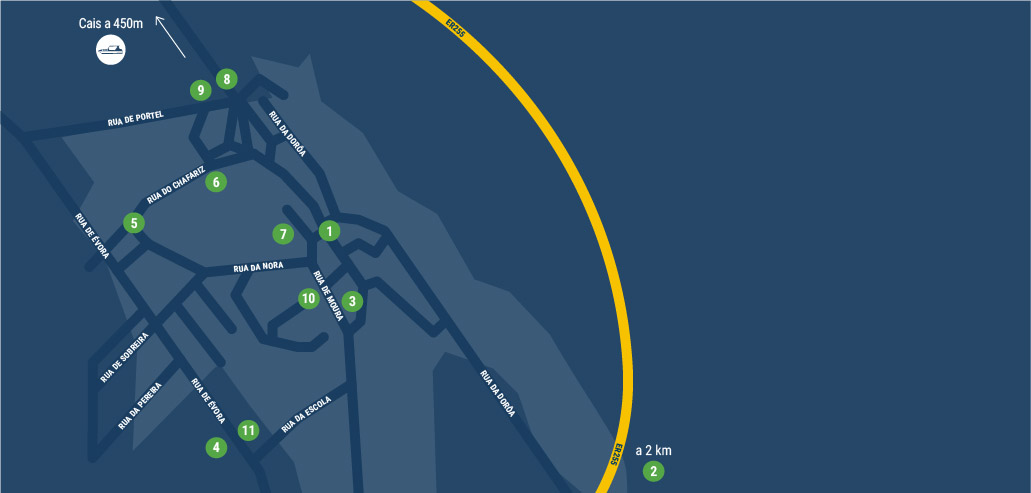
Alqueva
Lake
Alentejo / Portugal / water
The landscape around the Alqueva Lake is charming and unique.
Discover the lakeside villages and all they have to offer.
Culture and local cuisine are just some of the reasons why you should visit the lakeside villages of the Alqueva Lake.
One of the strategic aims of the Government is to enhance the tourist potential of the “Lands of the Great Alqueva Lake”.
The dam embraces the valleys of the Guadiana and Degebe rivers, as well as the Alcarrache, Zebro and Lucefecit streams. It offers real potential for tourist development due to its proximity to the villages and towns of Alentejo. These communities stand to benefit greatly from the combination of their own activities with those generated by the increase in tourism, leisure and recreational opportunities provided by the Alqueva waters and its margins.
area
approximately
250 km2
perimeter
approximately
1160 km
length
approximately
83 km
waterways
more than
150 km


